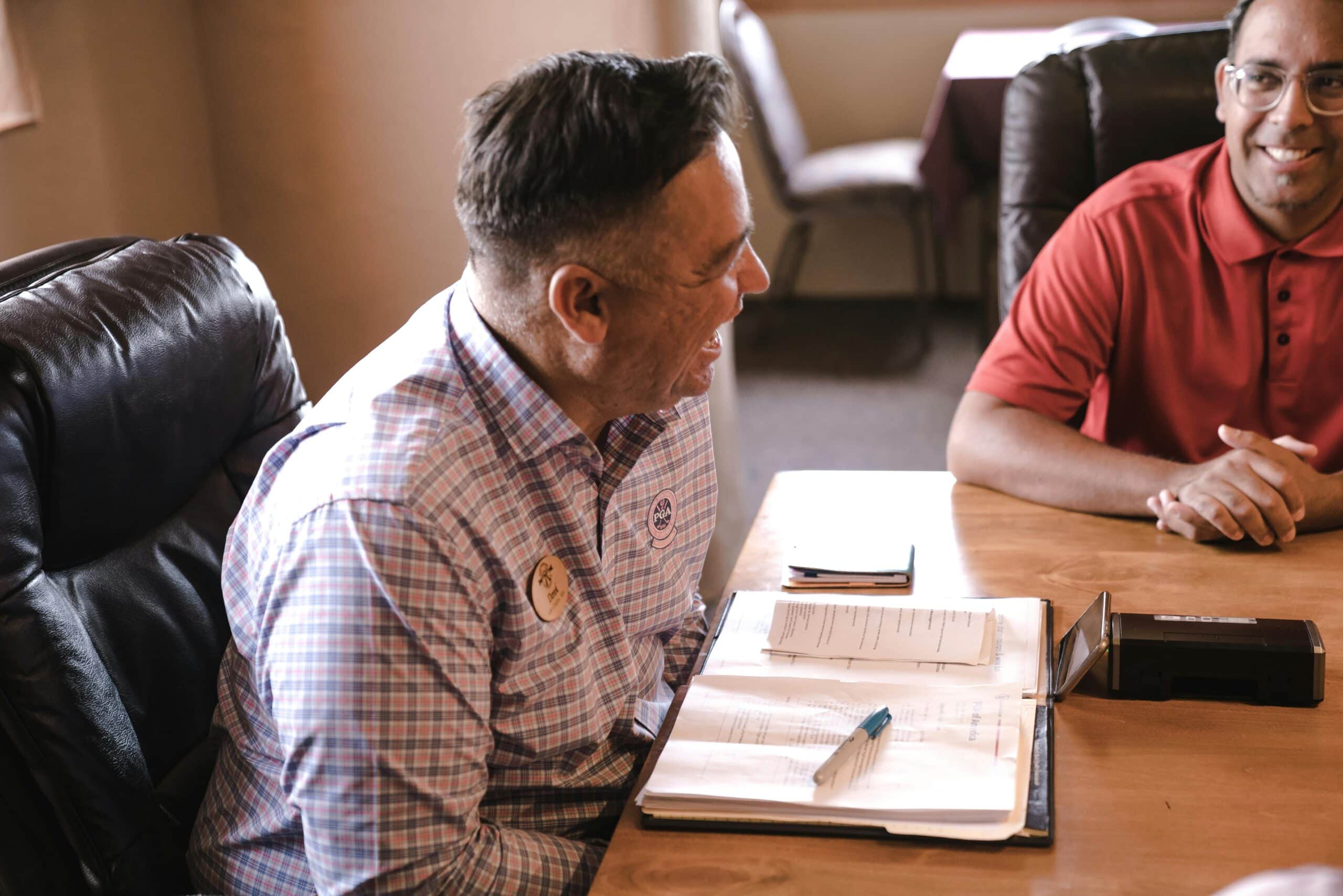Do you know that in the challenging legal landscape, the probate process requires far more than just distributing assets? It can take a serious toll on both your wallet and your peace of mind. So, your right decision about professional help can shape the future of your estate and your family’s financial well-being.
You need a legal partner with proven experience, in-depth knowledge, and a track record of trusted results. However, you should ask your probate attorney some essential questions before you sign any retainer or hand over your critical documents. This safe and proactive approach can save you time and money and prevent serious complications.
A probate attorney is a licensed legal professional who assists in settling a deceased person’s estate by guiding executors or beneficiaries through the probate process, which includes validating wills, managing assets, resolving debts and taxes, handling disputes, and ensuring the proper distribution of the estate according to the will or state law
Fales Law Group supports you in all your issues, like digital property, state laws, rising court fees, and complex taxes with legal compliance. If you’re looking for personalized guidance and a law firm that puts your peace of mind first, contact us today to move forward with confidence!
In this blog post, we will share 10 essential questions to ask a probate attorney and avoid costly mistakes to handle your estate with care and clarity.
10 Questions You Must Ask a Probate Attorney Before You Start
Asking the right questions is crucial when ensuring a good fit, whether it’s in hiring, outsourcing, or forming partnerships. By posing thoughtful and targeted inquiries, you can uncover essential information about potential collaborators, such as their capabilities, values, and work styles. This helps in assessing compatibility and potential for successful collaboration. Asking the right questions also demonstrates your commitment to understanding the other party’s strengths and weaknesses, fostering trust and open communication from the outset. Ultimately, this process allows you to make informed decisions that align with your goals and avoid costly missteps, ensuring a strong foundation for long-term success.
1. Asking About Their Probate Experience
Your first question should be direct, “How long have you been handling probate cases?” That’s because you’re not just looking for a probate attorney, not general legal experience. Specifically, they’ve got at least 5 to 10 years of experience under their belt. Their recent experience managing estates similar in size and complexity to yours can bring more satisfying results. A seasoned attorney will know everything about probate-related issues like avoiding delays, reducing stress, and navigating tricky legal terrain.
2. Make Sure They Know Your State’s Probate Laws
Probate laws can vary from state to state, and what works in Florida won’t work in California or New York jurisdictions. That’s why it’s essential to ask, “Are you familiar with probate laws in my state?” Your attorney should have specific knowledge of your local court system, deadlines, and filing requirements. Also, their experience in your state laws and regional quirks matters most for your case.
3. Clarify the Exact Services Included in Their Representation
You can’t expect full-service support from every probate attorney. Some professionals only help with court paperwork, while others go all-in with tax guidance, debt resolution, and estate distribution. So be sure to ask, “What services are included?” You can clarify if they handle communicating with beneficiaries, coordinating with financial institutions, and assisting the executor from start to finish. More clarity upfront can save you from headaches later.
4. Set Expectations Around Communication and Accessibility
When you’re managing your loved one’s estate, you never want any miscommunication or misunderstandings. That’s why you should ask, “How often will we communicate, and how will updates be delivered?” A professional attorney will have a clear plan with regular emails, biweekly check-ins, or access to a secure online portal. It’s always better if you can contact them directly.
5. Ask About Expected Timeline for Specific Case
You can ask your attorney, “How long do you expect this probate process to take for my situation?” Instead of keeping you in the dark, a good attorney will explain what factors can speed things up or drag them out of the process. Mostly, all straightforward cases wrap up in 6–12 months, while more complex or contested estates can take 18–30 months or more.
6. Request Transparent Fees and Costs
A transparent money talk is necessary to get a clear understanding of their fees and probate costs. You should ask them, “Can you provide a detailed breakdown of your fees?” The answer can make your professional relationship more stable. In the US, some attorneys charge hourly, some work on a flat fee, and others, like in California, use a percentage model based on the estate’s value. In addition to their fees, you can ask about third-party costs like appraisals, court filing fees, and taxes.
7. Find Out Their Strategy to Reduce Costs and Delays
To know about delays and cost reduction, you can ask, “What strategies do you use to minimize probate expenses and delays?” When you’re trying to qualify for simplified probate or using small estate affidavits, your attorney should have some tricks up their sleeve. In this situation, an experienced probate attorney can guide you through fast-track procedures and cost-effective solutions.
8. Inquire About Their Experience in Complex Assets
Nowadays, digital wallets, crypto, NFTs, foreign real estate, and online businesses are also included as invaluable assets. To work with the right person, you can ask, “Do you have experience handling digital or unique assets?” If they hesitate, that’s your cue to keep looking for the best match. Your probate attorney should know how to handle Bitcoin or a beach property in Belize.
9. Know Who You’ll Actually Be Working With
Sometimes, dealing with your attorney’s paralegal can be frustrating if you don’t expect it in your tough times. To stay on the same page, you can ask, “Who will I be communicating with on a day-to-day basis?” You deserve to know who’s managing your file and who to call when something urgent comes up. Clear boundaries and communication can matter for a smooth legal process.
10. Ask About Disputes or Contested Will
No matter how peaceful you are, you and your family can get tense during probate. That’s why you need to ask, “What happens if the will is contested or there’s a dispute?” Your probate attorney should have litigation experience or at least a trusted litigation partner. In a fight over inheritance or questions about mental capacity, your attorney should be ready to defend your estate and peace of mind in fights over inheritance or other issues.
Ready to Make the Right Move?
The probate process can be confusing, expensive, or drawn out in your case as well. With the right questions to ask a probate attorney, you can move through every step with ease and confidence. And if you’re ready to skip probate entirely? That’s where Fales Law Group comes in to solve the legal problems.
We focus on estate planning, living trusts, and probate avoidance strategies. Our legal services are tailored to your family and financial goals. You can take control of your legacy with simple wills to full trust-based plans. Schedule your free consultation today!
Common Questions
Frequently Asked Questions
What are the main types of living trusts, and how do they differ?
There are two primary types of living trusts:
- Revocable Living Trust: Allows you to retain full control over your assets during your lifetime, with the flexibility to modify or revoke the trust as your circumstances change.
- Irrevocable Living Trust: Once established, this trust cannot be altered or revoked, effectively removing the assets from your estate, which can offer protection from creditors and potential estate tax benefits.
Who should I designate as the trustee and beneficiaries of my living trust?
As the grantor, you can serve as the initial trustee, maintaining control over your assets. It’s essential to appoint a successor trustee who will manage the trust upon your incapacity or death. Beneficiaries are individuals or entities you designate to receive the assets held in the trust.
What types of assets can be placed into a living trust?
A living trust can include various assets, such as:
- Real Estate: Primary residences, vacation homes, and rental properties.
- Bank Accounts: Checking, savings, and money market accounts.
- Investments: Stocks, bonds, mutual funds, and other investment accounts.
- Business Ownership: Interests in privately owned businesses.
Personal Property: Valuable items like jewelry, artwork, and collectibles.
What are common mistakes to avoid when setting up a living trust?
Common pitfalls include:
- Not Funding the Trust: Failing to transfer assets into the trust renders it ineffective.
- Choosing the Wrong Trustee: Selecting an unreliable or unqualified trustee can lead to mismanagement.
- Neglecting to Update the Trust: Not revising the trust to reflect life changes can cause discrepancies.
- Improper Execution: Not signing the trust document in accordance with state laws can invalidate the trust.
- Overlooking Tax Implications: Not considering potential tax consequences can affect the estate’s value.
Why is it important to consult with an estate planning attorney when creating a living trust?
An estate planning attorney ensures that your living trust is tailored to your specific needs, complies with state laws, and helps you avoid common mistakes that could undermine your estate planning goals.


